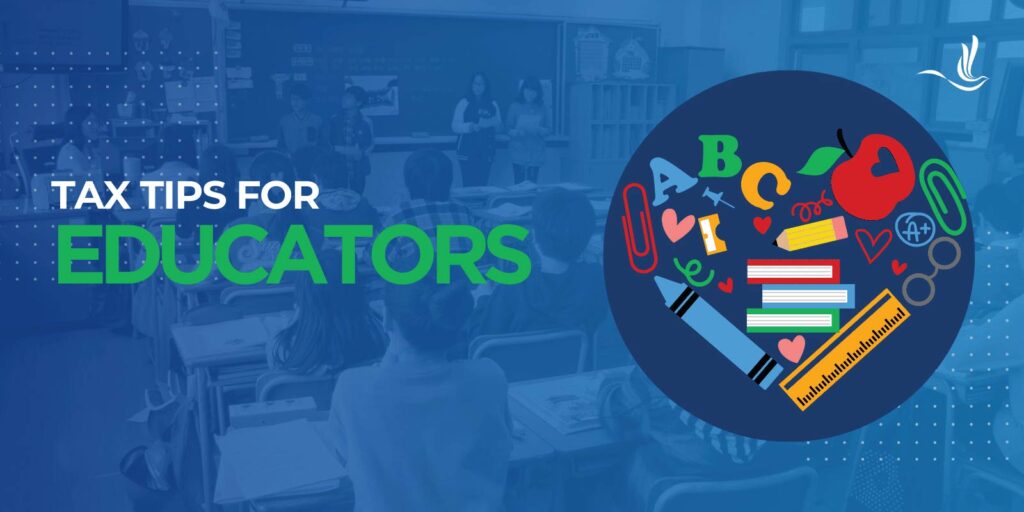
Educators play a crucial role in shaping the future by imparting knowledge and skills to the next generation. While their dedication to teaching is commendable, it’s essential for educators to be aware of various tax benefits and deductions available to them. These can help them reduce their tax liability and potentially increase their refunds. In this article, we’ll explore some tax tips for educators that can help maximize their returns.
Educator Expense Deduction
One of the most significant tax benefits for educators is the Educator Expense Deduction. This deduction allows eligible teachers, counselors, principals, and other school staff to deduct up to $300 of out-of-pocket expenses related to classroom supplies, materials, and professional development. The amount increases to $600 if they are married and file a joint return with a qualifying educator. Qualifying educators include those who teach K-12, instructors, counselors, principals, and aides who worked in a public or private educational institution for at least 900 hours during the school year.
Qualifying expenses may include books, supplies, computer software, and other items purchased for the classroom. To claim this deduction, you don’t need to itemize your deductions; it’s an above-the-line deduction, meaning it reduces your taxable income directly. Educators should be sure to save all receipts to substantiate their deductions.
Student Loan Interest Deduction
Many educators have student loans they are still paying off. Fortunately, there’s a tax deduction available for the interest paid on qualified student loans. Depending on your income, you may be able to deduct up to $2,500 in student loan interest. To qualify for this deduction, you typically need to meet certain income limits and other criteria. In 2023, your modified adjusted gross income (MAGI) must be less than $90,000 if you are single and less than $180,000 if you are married in order to claim at least some of this deduction.
403(b) Retirement Contributions
Educators often have access to retirement savings plans like 403(b) plans, which are similar to 401(k) plans for employees of tax-exempt organizations. Contributions to a 403(b) plan are made on a pre-tax basis, reducing your taxable income. Plus, your investments grow tax-deferred until retirement. Maximize your contributions to your 403(b) plan to save for your future while reducing your current tax burden. In 2023, you can contribute up to $22,500. If you are age 50 or over, you can contribute an additional $7,500 in catch-up contributions.
Freelance Tutor Deductions
If you work as a freelance tutor, you can write off expenses that are ordinary and necessary for your business. For example, you may be able to claim the home office deduction if you use a portion of your home exclusively for work-related activities. You can also deduct travel expenses if you meet students at a library or their home. This will require meticulous record-keeping of your mileage. Remember to only deduct for business-related travel. You can write off the cost of licensing your business, courses you may take to further your knowledge of a subject you teach, and even athletic or music equipment you use to teach with. Always consult with a tax professional to determine if you qualify for deductions and to ensure you maximize them while staying within IRS guidelines.
State-Specific Tax Benefits
In addition to federal tax benefits, educators should explore any state-specific tax incentives or deductions available to them. Some states offer additional tax benefits, such as credits for education-related expenses or loan forgiveness programs for teachers in certain subjects or underserved areas.
Consult with a Tax Professional
Navigating the complex world of tax codes and deductions can be challenging, so it’s advisable for educators to seek guidance from a qualified tax professional. They can help you identify all the tax benefits you’re eligible for and ensure that you’re making the most of your tax situation.
Tax Help for Educators
Educators work hard to empower and educate future generations. They should take advantage of the available tax benefits and deductions to maximize their financial well-being. By implementing these tax tips for educators, you can reduce your tax liability and increase your tax refund, allowing you to continue your invaluable work with the peace of mind that your finances are in good order. Optima Tax Relief is the nation’s leading tax resolution firm with over $1 billion in resolved tax liabilities.
If You Need Tax Help, Contact Us Today for a Free Consultation